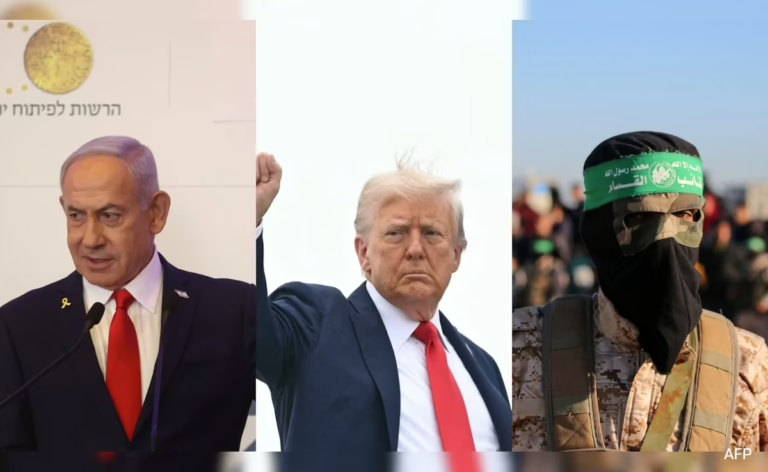The Trump administration has introduced an extensive 21-point peace framework aimed at Gaza, emphasizing the immediate release of all Israeli hostages and outlining a strategic vision for the region’s reconstruction and governance after the conflict, according to an informed insider.
President Donald Trump expressed optimism about the negotiations, stating that both parties are “very close” to reaching an agreement. This comes shortly after his special envoy hinted at a potential “breakthrough” following diplomatic discussions with Arab nations at the United Nations.
Central to the proposal is the demand that all hostages-estimated to be around 20 individuals still alive-be freed within 48 hours of finalizing the deal. In return, Israeli forces would begin a gradual withdrawal from Gaza. Importantly, the plan excludes Hamas from any future administrative role in Gaza, instead proposing a dual-layer interim governance system: an international supervisory body alongside a Palestinian administrative committee.
While the plan does not specify when the international authority would transfer control to the Palestinian Authority (PA)-an entity Israel has largely opposed governing Gaza-it acknowledges the long-term goal of establishing a Palestinian state. This aspect remains highly contentious among key factions within Prime Minister Benjamin Netanyahu’s coalition.
The peace blueprint was shared with leaders from Muslim-majority countries such as Qatar, Saudi Arabia, Egypt, Turkey, and Pakistan during the UN assembly. Notably, it also includes a commitment that Israel will refrain from further military actions against Qatar, following recent strikes targeting Hamas operatives in Doha.
Despite these diplomatic overtures, Netanyahu has publicly vowed to persist with military operations until Hamas is completely dismantled. Speaking at the UN General Assembly, he strongly opposed the creation of a Palestinian state, likening it to “granting al-Qaeda a state just a mile from New York City after 9/11.”
The U.S. plan explicitly rejects any forced relocation of Gaza’s residents, countering earlier remarks by Trump that suggested the possibility of moving the entire population elsewhere.
This proposal has sparked significant discord within Israel’s political landscape. Hardline ministers, including National Security Minister Itamar Ben Gvir, immediately voiced their opposition, warning that they might topple the government if the conflict ends before Hamas is fully defeated.
Ben Gvir asserted that Netanyahu “lacks the authority to conclude the war without the total destruction of Hamas.”
Conversely, Netanyahu’s Foreign Minister Gideon Sa’ar expressed confidence in the prime minister’s leadership, while opposition leader Yair Lapid offered critical support, stating, “Netanyahu has my backing for a hostage agreement and an end to the war,” thereby securing a parliamentary majority despite internal coalition tensions.
Meanwhile, Israeli military operations continue vigorously, with three divisions advancing their control over Gaza City. Netanyahu is slated to meet with President Trump at the White House on Monday to discuss the ongoing situation.


















0 Comments